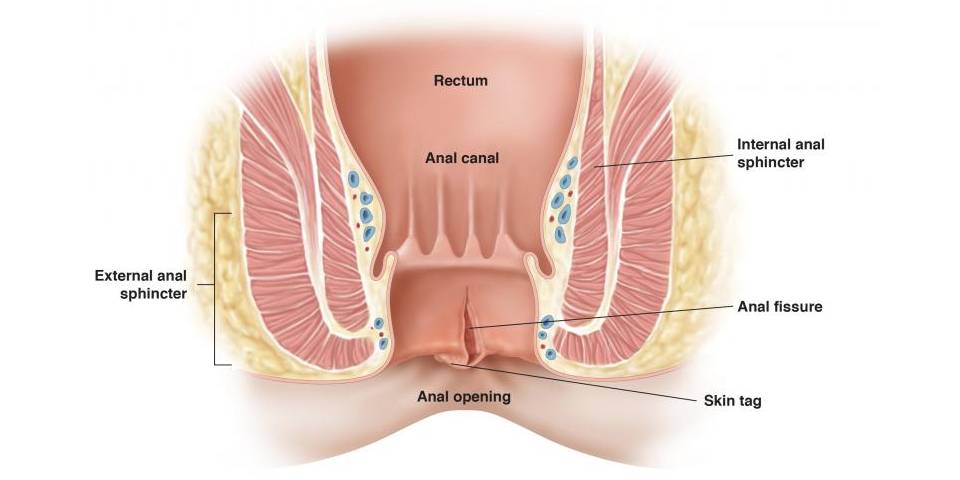
Best Fissure specialist in Chennai
Are you suffering from the anal Fissure and look for Best Fissure specialist in Chennai the Dr Pinak DasGupta is a best option for you . In chennai Dr Pinak DasGupta is a renowed as Best fissure surgeon in chennai provide both robotic and laparoscopic surgery in chennai
What is an Anal fissure?
An anal fissure is a tear or cuts in the thin lining of your anus that discloses the muscle around which is named the anal sphincter. The crevasse in the skin can often pull apart the edges of the fissure, cause the muscle to spasm, and make the situation depreciate. Once the spasm occurs, the condition can be painful and the wound may take time to heal. Chronic diarrhea and constipation are bowel conditions that make anal fissures more harmful over time.
Irrespective of age and gender, any person can be at risk of conceiving an anal fissure. Although medical reports suggest that people between the age group of 20 to 40 are more at risk of getting anal fissures.
Types of Anal Fissure:
- Acute Anal Fissure
- Chronic Anal Fissure
Causes:
- Chronic constipation
- Long-term diarrhea
- Rough anal sex
- Insertion of foreign materials in the anus
- Straining too much while passing a bowel movement
- Passing too hard, large and dry stool
- Injury in the anal area
- Underlying conditions such as Chrohn’s disease, anal cancer, sexually transmitted diseases
- Disruption in the blood flow to the anorectal area
Signs & symptoms of anal fissure:
- Difficulty passing stool
- Pain during bowel movements
- Blood along with stool
- Cracks and tears that appear in the anal canal
- Itching and burning sensation in the anal region
- Painful urination
- Foul-smelling anal discharge
Risk Factors and Complications:
The following factors can put you at risk of getting an anal fissure:
- Intense diarrhea
- Chronic constipation
- Straining while passing stool
- Eating low-fiber diet
- Any weight-loss surgery in the recent time
- Trauma caused to the anal area due to any injury or accident
- Any inflammatory problem in the anal area.
Diagnosis:
An anal fissure is a small tear or cut on the lining of the anus. An anal fissure can be easily identified through naked eyes by an anorectal specialist. But to confirm the condition, the doctor might recommend undergoing the following tests for diagnosis:
- Flexible sigmoidoscopy – For this test, the doctor will insert a thin, flexible tube that has a tiny camera attached at one end inside your anus. This test is most recommended in people who are younger than 50 years of age and have no risks of any anorectal disease.
- Colonoscopy – In this test, the anorectal doctor inserts a thin, flexible tube inside the rectum to inspect the colon. Colonoscopy is feasible for people over 50 years of age. This test is also done in people who are at risk of colon cancer, chronic diarrhea, and severe abdominal pain due to an anorectal problem.
- Anoscopy – Anoscopy is a test where a tubular device is inserted into the anus. The device gives a detailed imaging view of the anus and rectum and helps the doctor identify and locate where exactly the problem is.
Treatment of Fissures By Dr. Pinak Dasgupta:
The symptoms of anal fissure can usually be confusing to that of piles or hemorrhoids. There are increased chances that you would feel uneasy and ashamed talking about your symptoms to your doctor, but it is important to do so. An experienced proctologist Dr. Pinak Dasgupta can diagnose anal fissures just by physical examination. But to rule out the problem the doctor may need to do a rectal examination to diagnose the condition in detail. In this process, the doctor inserts a gloved finger inside your anus to feel the abnormal growth.
Generally, anal fissures can be diagnosed with just a visual examination. But depending upon the severity of your condition, the Dr. Pinak Dasgupta might need you to undergo more tests before defining the best line of treatment. Often, anal fissures are associated with other health conditions such as Crohn’s Disease and other serious conditions. In that case, the proctologist might recommend sigmoidoscopy, colonoscopy, or anoscopy for better evaluation. Additionally, the doctor might also ask you the following questions to understand your condition better:
- Since when did you start feeling pain in your anal region?
- How painful is your bowel movement?
- Does anyone in your family have anal fissures?
- What is your regular dietary routine like?
- Are you physically active?
